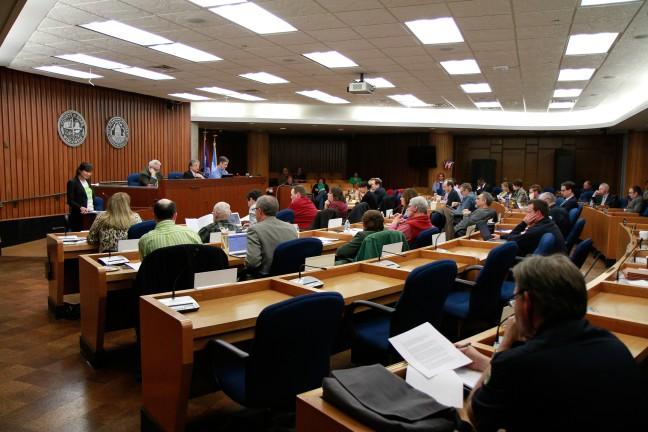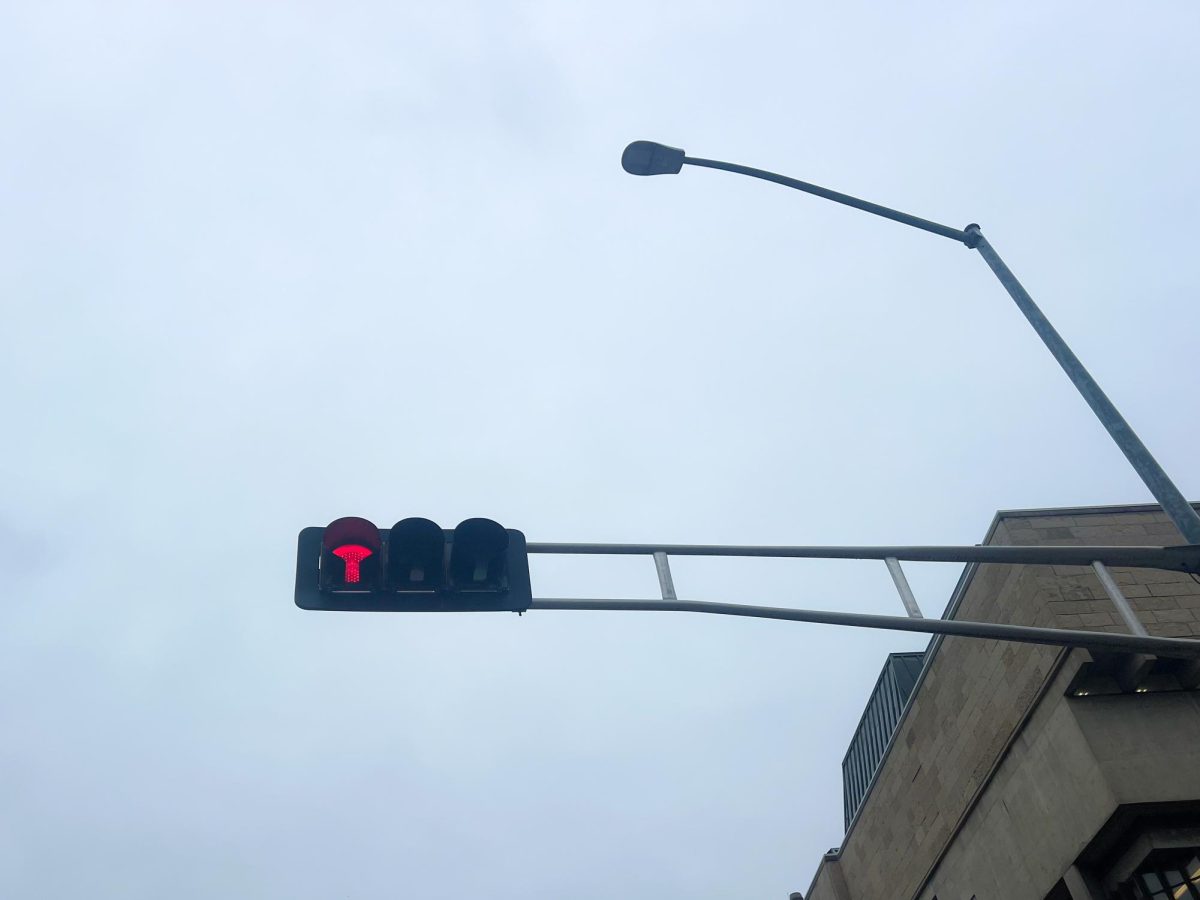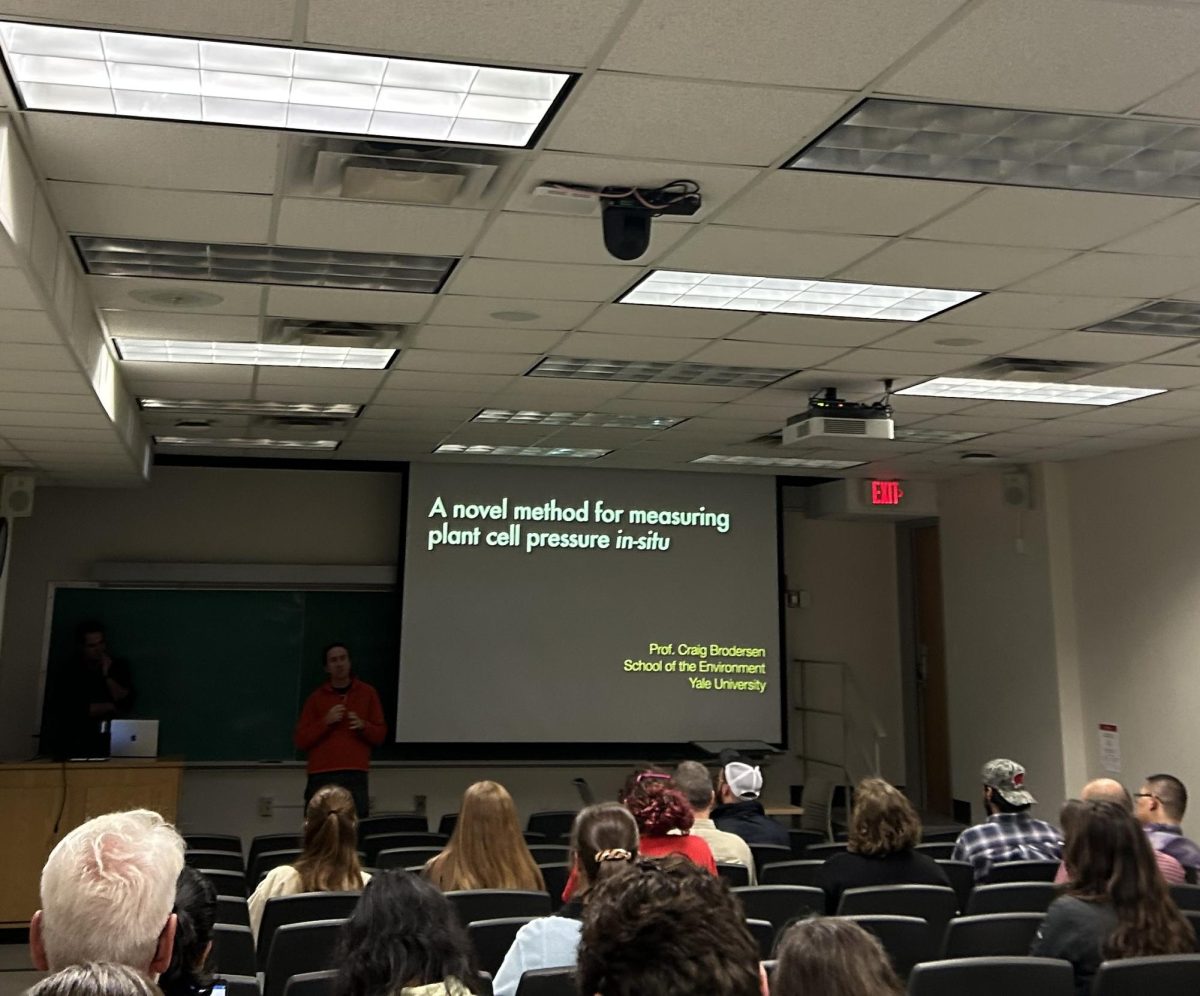Madison’s City Council accepted recommendations on the use of police body cameras, an ordinance prohibiting conviction questions in hiring processes by city contractors and rejected new restrictions on lobbyists.
Body cameras and community policing
The council unanimously accepted recommendations from an ad hoc committee including banning racial profiling and having mental health professionals respond with police during crisis situations.
Jacquelyn Boggess, director of Center for Family Policy & Practice, presented the findings and recommendations of the Community Policing and Body Camera Ad Hoc Committee.
Boggess said the committee had found no strong support in favor of or against the use of body cameras by Madison Police Department.
Committee reviews local sentiment towards police, body cameras
Mayor Paul Soglin, MPD Chief Mike Koval and council members discussed the underlying fear and mistrust permeating police-community relationships. Boggess tried to inform the discussion with the data she collected, but reminded the council her study’s recommendations were not exhaustive.
A city council member must propose the action before any pilot program for body cameras can be implemented.
University of Wisconsin police and some county agencies have already begun implementing body cameras.
Lobbyist restrictions
New restrictions on lobbyists that would have required more approval processes before lobbyists could serve on committees was widely debated before rejection by voice vote.
The proposed restrictions on lobbyists, introduced earlier this year before being revised and “defanged,” as one council member put it, would have placed lobbyists in the same category as people who wish to serve on committees and are nonresidents.
This would require Soglin and two-thirds of the council to approve any lobbyist seeking to serve in a committee.
Susan Schmitz, president of Downtown Madison Incorporated, said she was proud of the work Soglin has done as a lobbyist working with the city. She said she would not serve on a committee that would have a direct conflict of interest with her position at DMI, such as the Plan Commission.
Ald. David Ahrens, District 15, said the proposal would allow the council to decide whether a lobbyist would have a conflict of interest within a committee. He said there had been instances in which lobbyists had clear conflicts in the past.
Ald. Mark Clear, District 19, said he agreed with Schmitz that prohibiting lobbyists from city committees is not necessary.
“This is a solution looking for a problem,” Clear said.
Ban the box
The council unanimously approved an ordinance requiring all city contractors to remove questions regarding criminal history from their hiring applications.
The ordinance extends to any contract with the city valued at more than $10,000 and covers unpaid interns as well as paid position applications.
Judge Doyle Square
The council also voted to approve amendments that would limit project consideration to the three existing Judge Doyle Square developers.
Negotiations with Exact Sciences were terminated after the company withdrew their proposal.
Board of Estimates votes for fresh start on Judge Doyle Square project
A letter from one of the original applicants complained the city would be altering the proposal process after the Board of Estimates had planned to reopen the project to new developers.
The amendment to the board’s language passed unanimously.













